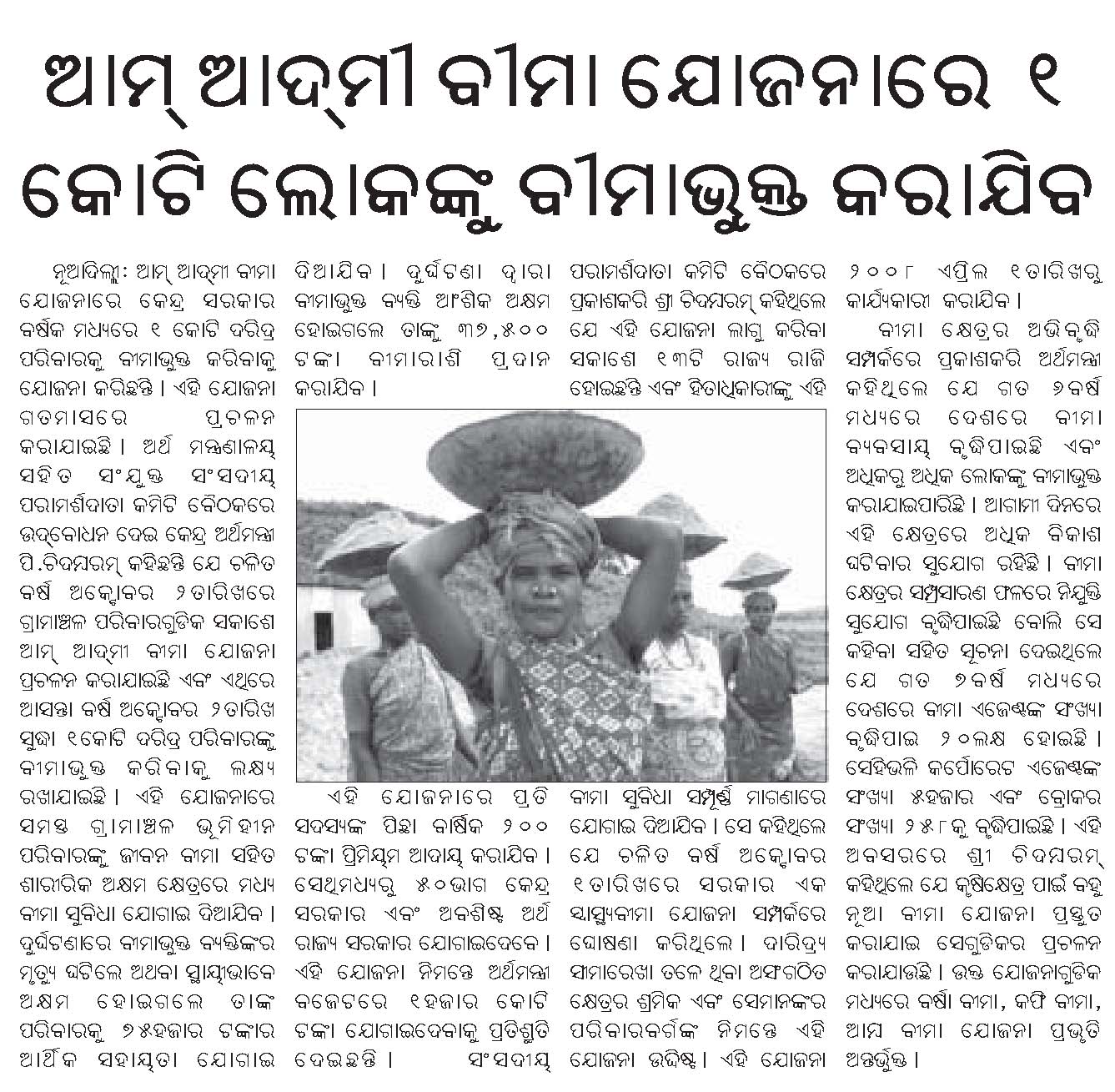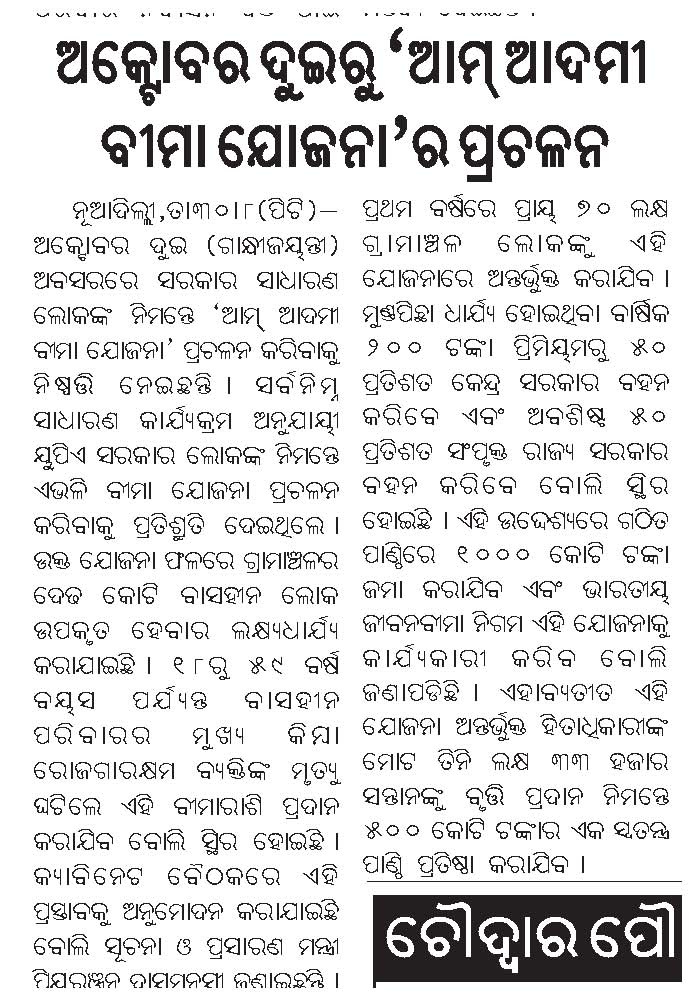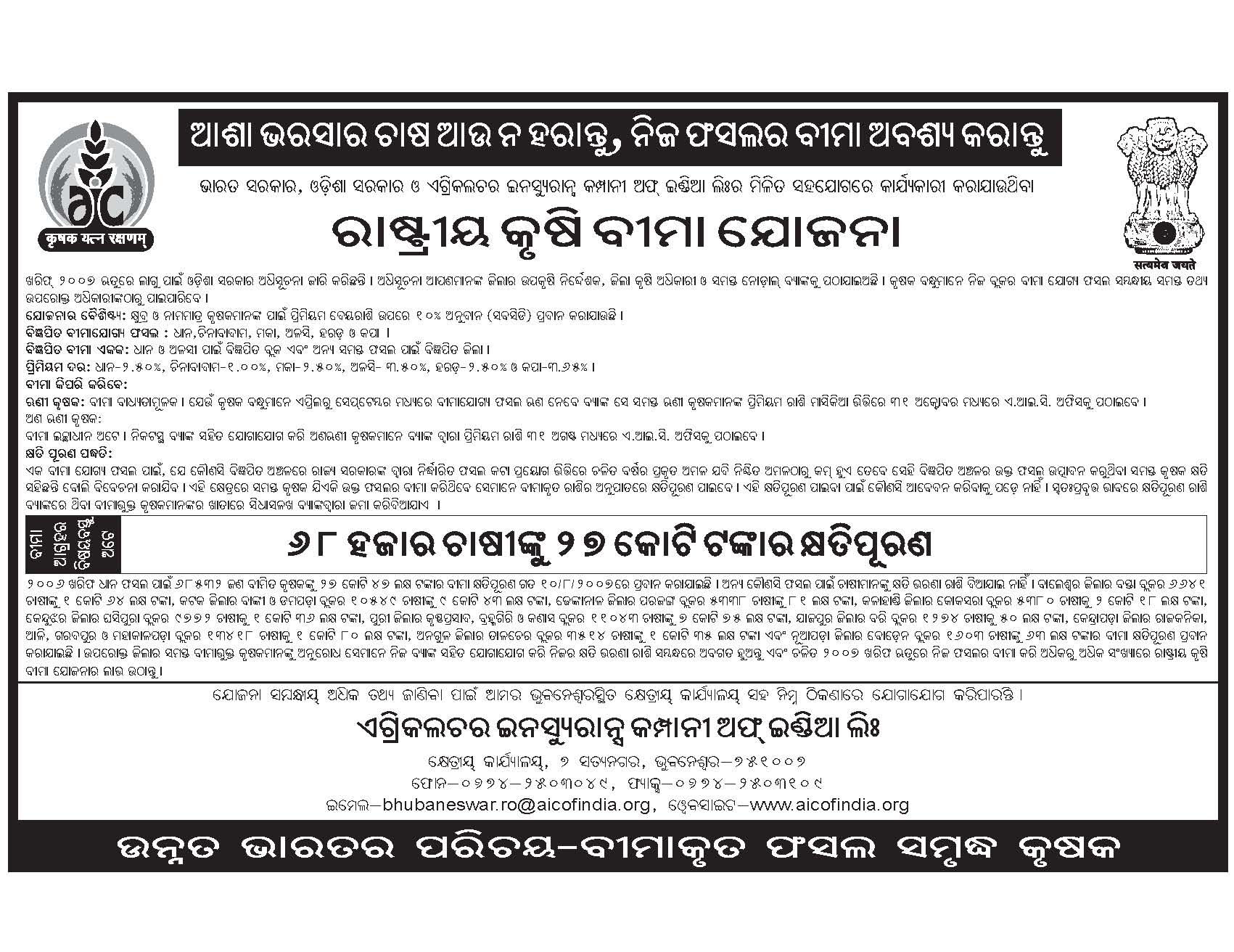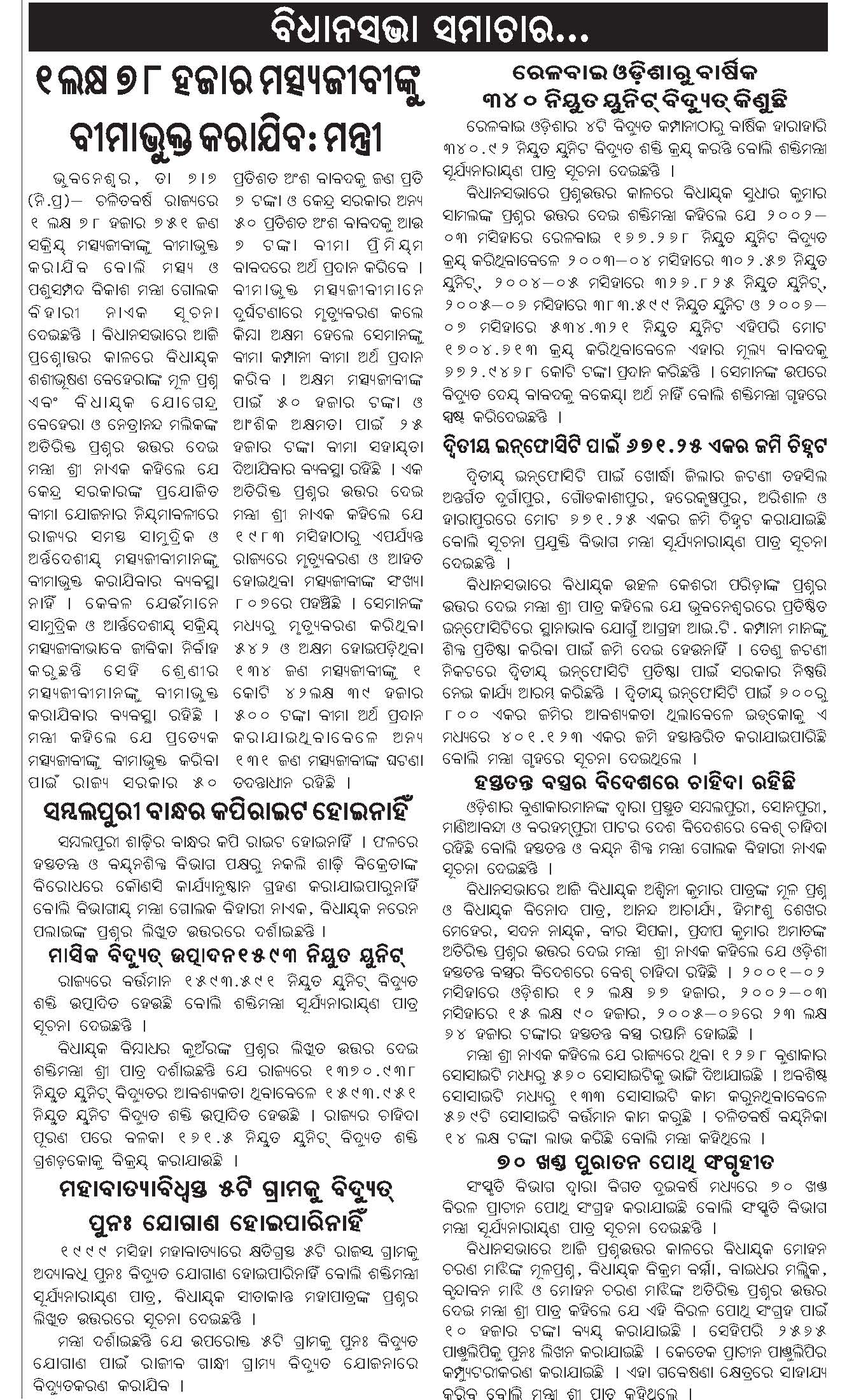Excerpts from the Presidents’ speech to the new parliament on 4th June 2009
Aaam Admi Bima Yojana, ADMINISTRATION & REPs, Agricultural insurance, Bharat Nirman Program, E-governance, Elections 2009, Fishermen insurance, Health insurance for BPL workers, Health insurance for weavers, Marquee Institutions: existing and upcoming, National Food ... (NFSM), National Old Age Pension (NOAP), NFBS, NMBS, NOAPS, NREGS, NSAP: NOAPS, NFBS, NMBS, NURM, JNNURM, PPP, RURAL & SPECIAL PROGRAMS, Universities: existing and upcoming Comments Off on Excerpts from the Presidents’ speech to the new parliament on 4th June 2009The whole speech is at http://presidentofindia.nic.in/sp040609.html. Following are excerpts. The underlining and other emphasis is mine.
18. The flagship programmes which my Government introduced have moved the country towards inclusive development. It would be our endeavour to consolidate these programmes in the next five years. The National Rural Employment Guarantee Act has proved to be what it promised-an effective social protection measure and the largest programme in the world for rural reconstruction. Its transformational potential is unfolding before our eyes. My Government would enlarge the scope of works permitted under the National Rural Employment Guarantee Act presently limited to unskilled manual work. The opportunity for improving land productivity through the NREGA will be maximized through better convergence of NREGA with other programmes. To ensure transparency and public accountability, independent monitoring and grievance redressal mechanisms will be set up at the district level.
19. The National Rural Health Mission has begun to strengthen rural public health infrastructure. The Mission would be consolidated to make perceptible reduction in infant mortality and maternal mortality in the next five years. Vaccine producing institutes in the public sector will be revived to support the immunization programme. My Government will expand the Rashtriya Swasthya Bima Yojana to cover all families below the poverty line in the next five years. Malnutrition has emerged as a major health challenge needing urgent response. Hence the nutrition delivery programme will be comprehensively revamped to bring it under the watch of panchayat institutions and move to provision of hot cooked meals in anganwadis.
20. Sarva Shiksha Abhiyan has been able to provide access to children to elementary schools and retention has increased on account of the universal mid-day meal programme. The focus will be on making quality education a right through the enactment of the Right to Free and Compulsory Education Bill now under consideration of Parliament. The Madhyamik Shiksha Abhiyan will universalize access to secondary education. The massive expansion in higher education through new institutions under implementation in the Eleventh Plan will enable the country to meet the challenge of education in full measure. In the last five years, a wide range of scholarships and educational loans was introduced for the needy and deserving students. This effort will be reviewed and further strengthened. Government’s strategy for higher education will be formulated around a three-fold objective of expansion, inclusion and excellence. The suggestions given by the National Knowledge Commission will guide the formulation and implementation of the strategy.
21. While male literacy went up to over 75 percent in the last census and is expected to be higher now, female literacy was only 54 percent in 2001. My Government will recast the National Literacy Mission as a National Mission for Female Literacy to make every woman literate in the next five years. Increased female literacy is expected to become a force multiplier for all our social development programmes.
22. My Government launched Bharat Nirman five years ago as a time-bound business plan for rural infrastructure. It has succeeded in reaching basic infrastructure of roads, electricity and telephone to a large number of villages. It has also achieved most of the targets of rural water supply, rural housing and has increased irrigation potential. The remaining tasks will be completed in the second phase of Bharat Nirman. It is also proposed to set enhanced targets for Bharat Nirman in the second phase.
– The Indira Awas Yojana, which exceeded the original target of sixty lakh houses for the period 2004-2009, will now take up double the target of rural housing to one crore twenty lakh houses to be completed in the next five years.
– Rural Water supply programme will be completed by 2011 and handed over to be managed by panchayats in the next Plan.
– The rural telecommunication target will be set at reaching 40% rural teledensity in the next five years and expanding broadband coverage to connect every panchayat to a broadband network in three years. The scheme for Common Service Centres or e-kiosks will be suitably repositioned to be a network of panchayat-level Bharat Nirman Common Service Centres to provide government services to citizens in rural areas.
– New targets would be set for rural electrification, irrigation and road connectivity.
23. The Jawaharlal Nehru National Urban Renewal Mission (JNNURM) with approval of projects of nearly Rs. 50,000 crore in the last four years is reshaping our cities and has been widely welcomed. It will continue to focus on infrastructure, basic services and governance reform and increase support to cities to upgrade public transport. Over 15 lakh houses are under construction for the urban poor. There is a need to focus urban housing programmes on the poor living in slums. My Government proposes to introduce a Rajiv Awas Yojana for the slum dwellers and the urban poor on the lines of the Indira Awas Yojana for the rural poor. The schemes for affordable housing through partnership and the scheme for interest subsidy for urban housing would be dovetailed into the Rajiv Awas Yojana which would extend support under JNNURM to States that are willing to assign property rights to people living in slum areas. My Government’s effort would be to create a slum free India in five years through the Rajiv Awas Yojana.
24. My Government proposes to enact a new law — the National Food Security Act — that will provide a statutory basis for a framework which assures food security for all. Every family below the poverty line in rural as well as urban areas will be entitled, by law, to 25 kilograms of rice or wheat per month at Rs. 3 per kilogram. This legislation will also be used to bring about broader systemic reform in the public distribution system.
26. Over 50 percent of our population is below 25 years of age and their creative energy is our greatest strategic resource. The challenge is to invest in their education, employability and employment. India has the capacity to contribute to a fourth of the global work force if it invests in skill development of its youth. Education which provides employable skills holds the key for equal opportunities for Other Backward Classes, Scheduled Castes, Scheduled Tribes, and Minorities. My Government has in the last five years brought in legal changes and investment in this direction. These would be consolidated. Besides making massive investment in education, government will focus on the national skill development initiative that has commenced operation with the very ambitious goal of creation of 500 million skilled people by 2022 so that we realize the demographic dividend.
27. The implementation of the Scheduled Tribes and Other Traditional Forest Dwellers (Recognition of Forest Rights) Act would be monitored to ensure that all title deeds are distributed by end of 2009.
29. The Amendment Bill to the Land Acquisition Act and the Rehabilitation and Resettlement Bill prepared to protect farmers and others dependent on farming from unfair displacement and which was placed before Parliament could not be carried through. It will be our endeavour to have these bills reintroduced and enacted in the budget session of Parliament.
30. My Government considerably enhanced provisions for social security through old age pension for all people below the poverty line and above 65 years of age, all handicapped people and all widows above the age of forty. It will examine extending social protection to other persons at special risk. Social security schemes for other occupations like landless labour, weavers, fisherfolk, toddy tappers, leather workers, plantation labour, construction labour, mine workers and beedi workers will be appropriately expanded.
32. My Government will initiate steps within the next hundred days on the following measures:
…
– Restructuring the Backward Regions Grant Fund, which overlaps with other development investment, to focus on decentralized planning and capacity building of elected panchayat representatives. The next three years would be devoted to training panchayat raj functionaries in administering flagship programmes;
– A public data policy to place all information covering non-strategic areas in the public domain. It would help citizens to challenge the data and engage directly in governance reform;
– Increasing transparency and public accountability of NREGA by enforcing social audit and ensuring grievance redressal by setting up district level ombudsman;
– Strengthening Right to Information by suitably amending the law to provide for disclosure by government in all non-strategic areas;
– Strengthening public accountability of flagship programmes by the creation of an Independent Evaluation Office at an arm’s distance from the government catalysed by the Planning Commission. It would work on a network model by collaborating with leading social science research organizations and concurrently evaluate the impact of flagship programmes and place it in the public domain;
– Establishing mechanisms for performance monitoring and performance evaluation in government on a regular basis;
– Five Annual Reports to be presented by government as Reports to the People on Education, Health, Employment, Environment and Infrastructure to generate a national debate;
– Facilitating a Voluntary Technical Corps of professionals in all urban areas through JNNURM to support city development activities;
– Enabling non government organisations in the area of development action seeking government support through a web-based transaction on a government portal in which the status of the application will be transparently monitorable;
– Provision of scholarships and social security schemes through accounts in post offices and banks and phased transition to smart cards;
– Revamping of banks and post offices to become outreach units for financial inclusion complemented by business correspondents aided by technology;
– Electronic governance through Bharat Nirman common service centres in all panchayats in the next three years;
– A model Public Services Law, that covers functionaries providing important social services like education, health, rural development etc. and commits them to their duties, will be drawn up in consultation with states;
– A National Council for Human Resources in Health as an overarching regulatory body for the health sector to reform the current regulatory framework and enhance supply of skilled personnel;
– A National Council for Higher Education as recommended by the Yashpal Committee and the National Knowledge Commission to bring in reform of regulatory institutions;
– Develop a "brain gain" policy to attract talent from all over the world into the 14 universities proposed in the 11th plan to position them as "Innovation Universities";
– A roadmap for judicial reform to be outlined in six months and implemented in a time-bound manner;
– Targeted identification cards would subsume and replace omnibus Below Poverty Line (BPL) list. NREGA has a job card and the proposed Food Security Act would also create a new card. Identification of beneficiaries for other programmes which currently use the omnibus BPL list would improve identification based on programme objectives with the common underlying principle that all identification of beneficiaries will be done through gram sabhas and urban local bodies and the list placed in the public domain to be open to challenge;
– A Delivery Monitoring Unit in the Prime Minister’s Office to monitor flagship programmes and iconic projects and report on their status publicly;
– Suitably institutionalized quarterly reporting on Flagship programmes as "Bharat Nirman Quarterly Reports" where Ministers would publicly report on progress through the media.
33. Infrastructure is a fundamental enabler for a modern economy and infrastructure development will be a key focus area for the next five years. Public investment in infrastructure is of paramount importance. Bottlenecks and delays in implementation of infrastructure projects because of policies and procedures, especially in railways, power, highways, ports, airports and rural telecom will be systematically removed. Public-private partnership (PPP) projects are a key element of the strategy. A large number of PPP projects in different areas currently awaiting government approval would be cleared expeditiously. The regulatory and legal framework for PPPs would be made more investment friendly. My Government will continue its special emphasis on infrastructure development in the North-East and Jammu and Kashmir and enhance connectivity to these regions.
34. Our fellow citizens have every right to own part of the shares of public sector companies while the government retains majority shareholding and control. My Government will develop a roadmap for listing and people-ownership of public sector undertakings while ensuring that government equity does not fall below 51 %.
35. My Government is firmly committed to maintaining high growth with low inflation, particularly in relation to prices of essential agricultural and industrial commodities. It will steadfastly observe fiscal responsibility so that the ability of the Centre to invest in essential social and economic infrastructure is continuously enhanced. This will require that all subsidies reach only the truly needy and poor sections of our society. A national consensus will be created on this issue and necessary policy changes implemented.
36. My Government has been able to significantly increase realization of direct taxes as a result of improved and simplified tax administration and this process will continue. The roadmap for moving towards a Goods and Services Tax will be vigorously pursued. My Government is fully seized of the issue of illegal money of Indian citizens outside the country in secret bank accounts. It will vigorously pursue all necessary steps in coordination with the countries concerned.
37. Coordinated action for energy would be guided by the integrated energy policy. The effort would be to see that at least 13,000 MW of generating capacity is added each year through a mix of sources -coal, hydel, nuclear and renewables. Village and rural household electrification and reduction in aggregate technical and commercial losses will continue to be given the highest priority. Competitiveness and efficiency in the power sector will be enhanced through time-bound measures, including operationalising the provision of open access.
38. The pace of oil and gas exploration will be intensified and India’s oil diplomacy aggressively pursued. Reforms in the coal sector, for which a detailed blueprint has been prepared, will be pursued with urgency. The international civil nuclear agreements will be operationalised with various countries even as domestic sources of uranium are exploited and work continues on the indigenously designed fast breeder and thorium reactors.
39. My Government will ensure that our space programme which has achieved wide recognition continues to bring rich dividends to society in agriculture, tele-medicine, tele-education and by providing information to rural knowledge centres, besides contributing to telecommunication, television broadcasting and weather forecasting. Several innovative initiatives commenced by government in the science and technology sector in the last five years and now under implementation will be further strengthened.
40. My Government is proactively addressing issues of climate change through eight national missions. Of these the National Solar Mission, the National Water Mission, the National Mission on Energy Efficiency, the National Mission on Sustainable Agriculture and the National Mission on Sustainable Habitat will be launched by the end of this year. The National Ganga River Basin Authority, set up recently will evolve a new action plan for cleaning and beautifying the river in partnership with the basin states.




